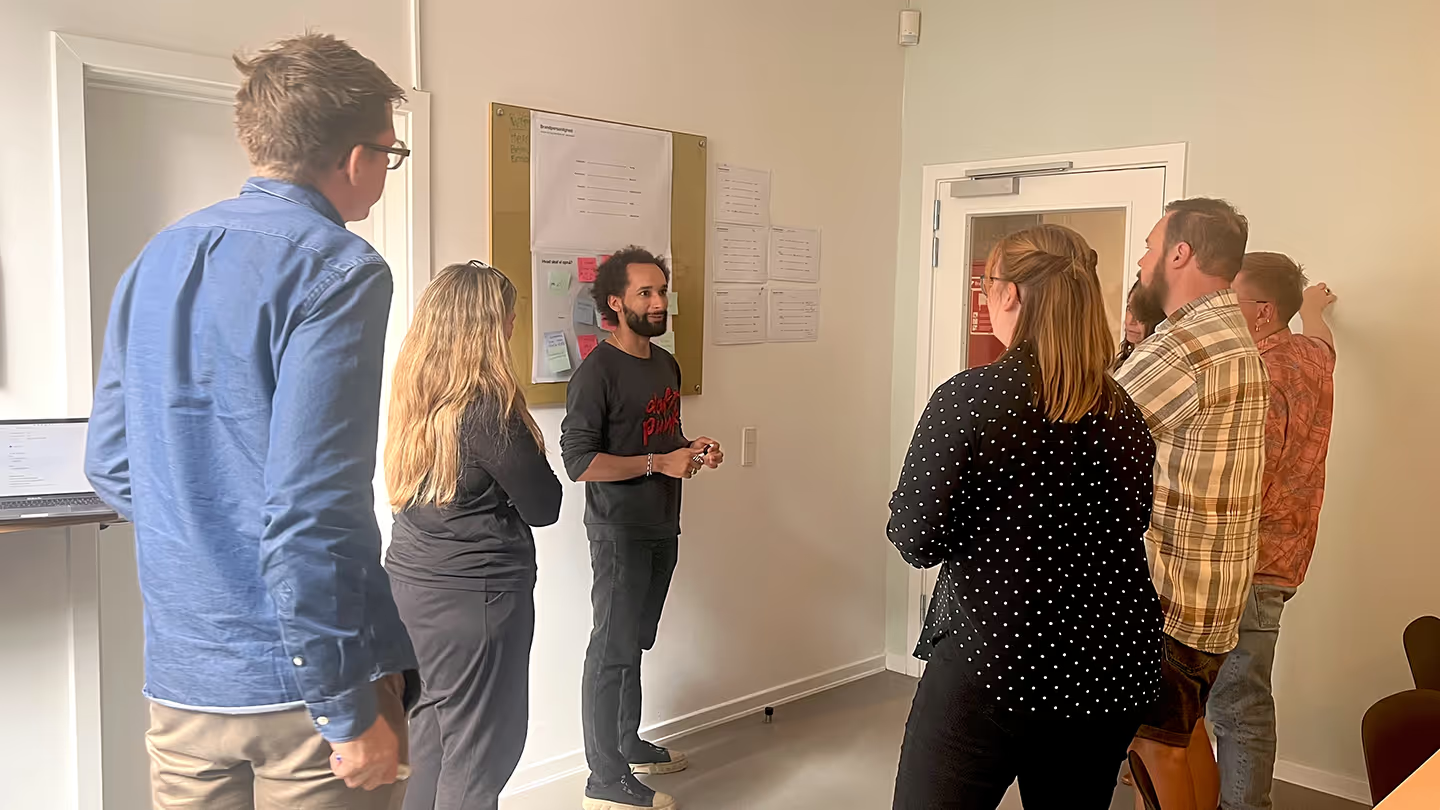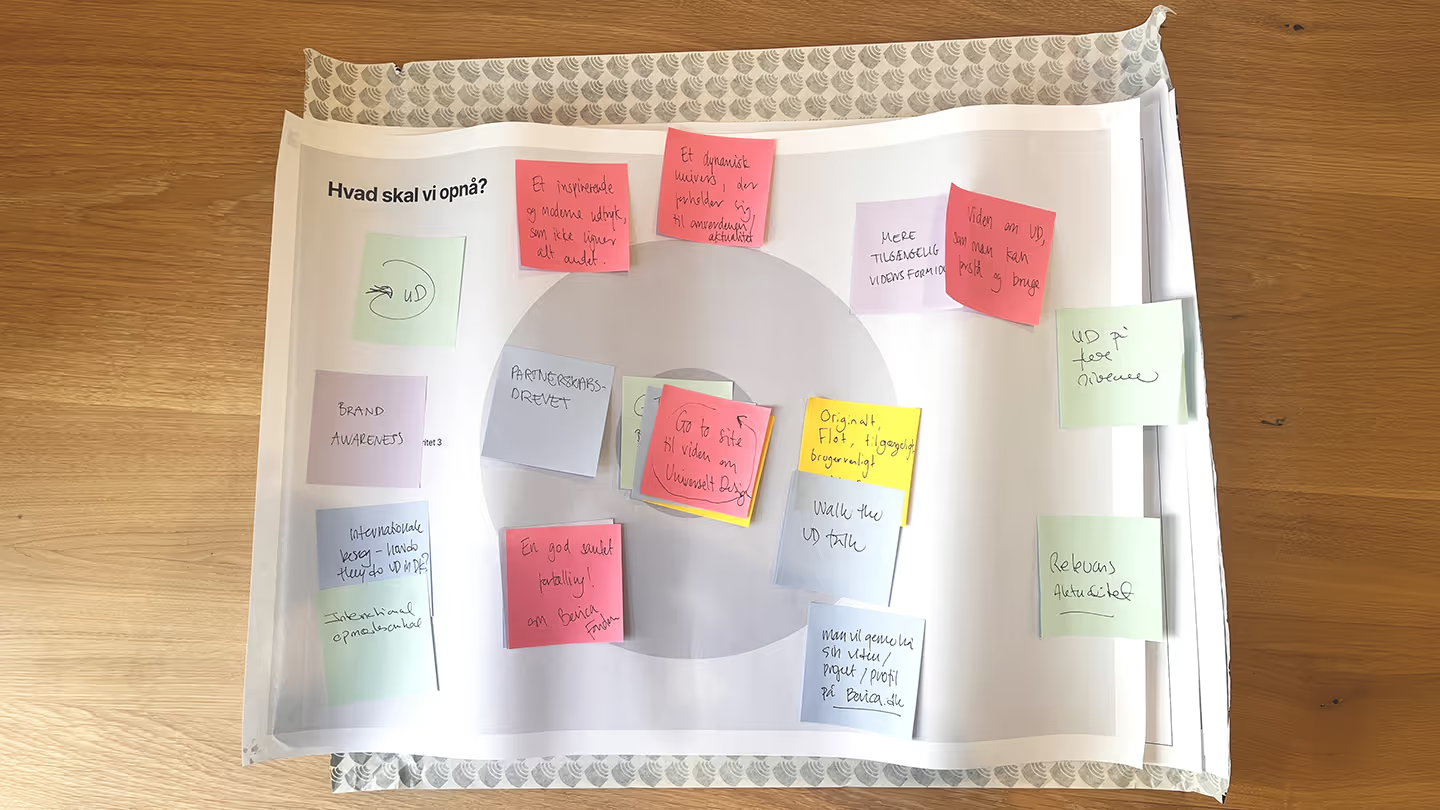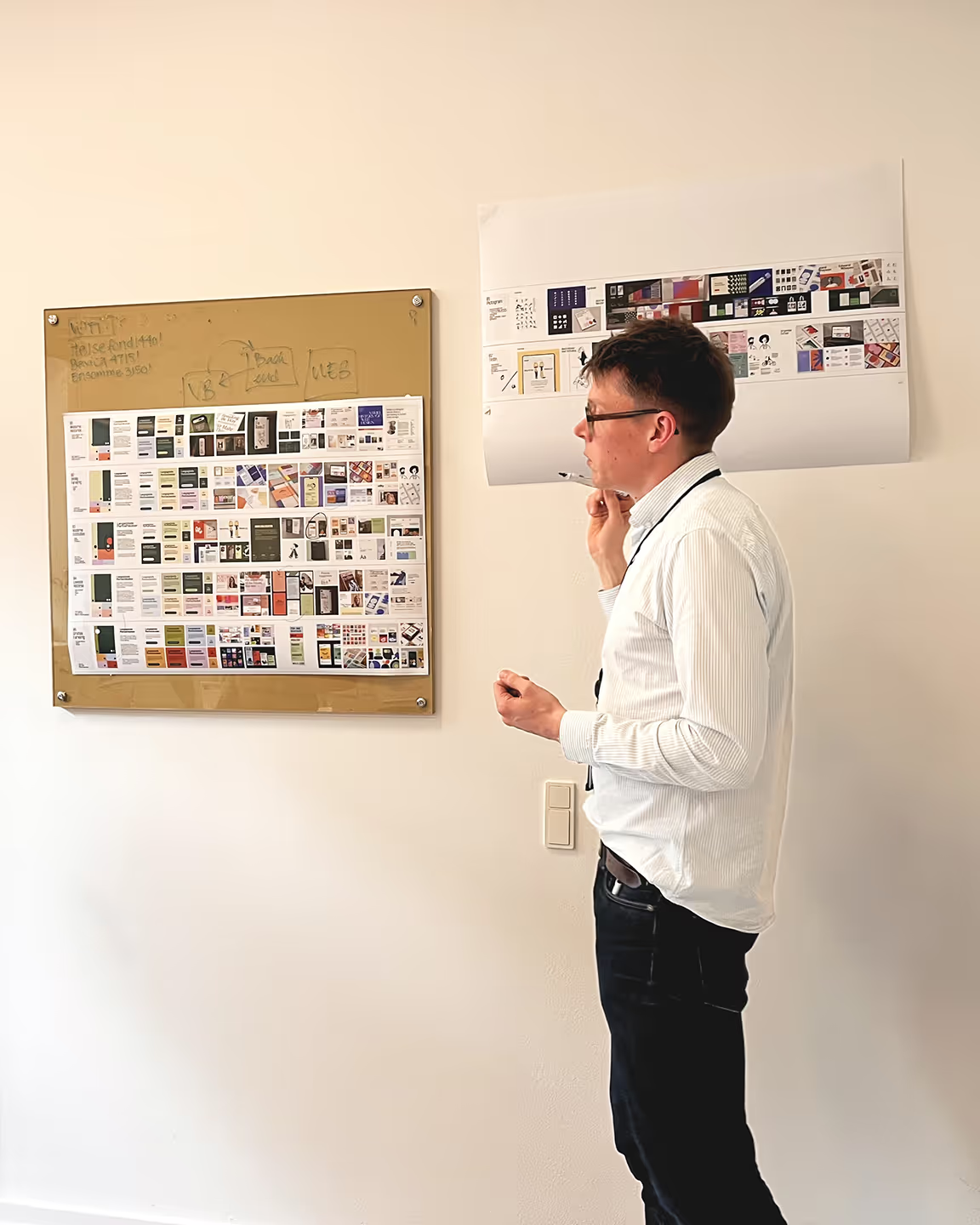A unified knowledge hub for universal design


Bevica Foundation wanted to merge three separate websites into a single digital platform that would serve as both a best-practice example of Universal Design and a vibrant, inspiring hub for their many audiences.
Kvalifik designed and developed a new Webflow-based website with a bold visual identity, comprehensive accessibility features, an AI assistant, and a flexible CMS structure. The result is a portal that caters to researchers, practitioners, and partners — proving that accessibility can be both beautiful and functional.
Bevica Foundation is a commercial foundation with over 150 years of history and a clear mission: to strengthen Universal Design in Denmark and internationally. As a frontrunner in the field, they wanted a new website that not only met accessibility standards, but set the benchmark. And a site that showed that accessible does not equal boring.
Their old digital presence was fragmented across three separate websites with expert lists, knowledge resources, and activities scattered across sites, making it difficult for users to get a complete overview.
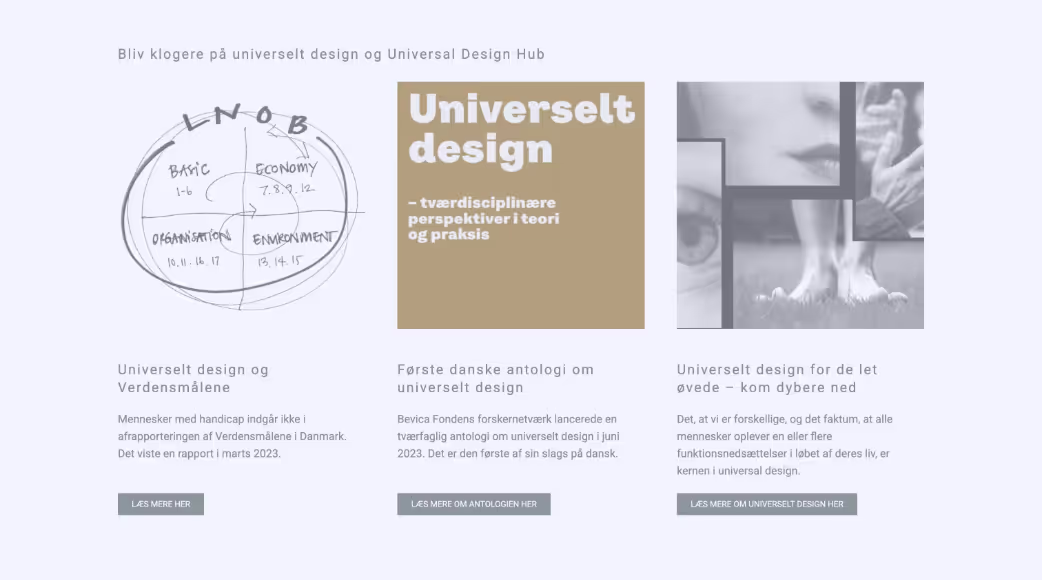
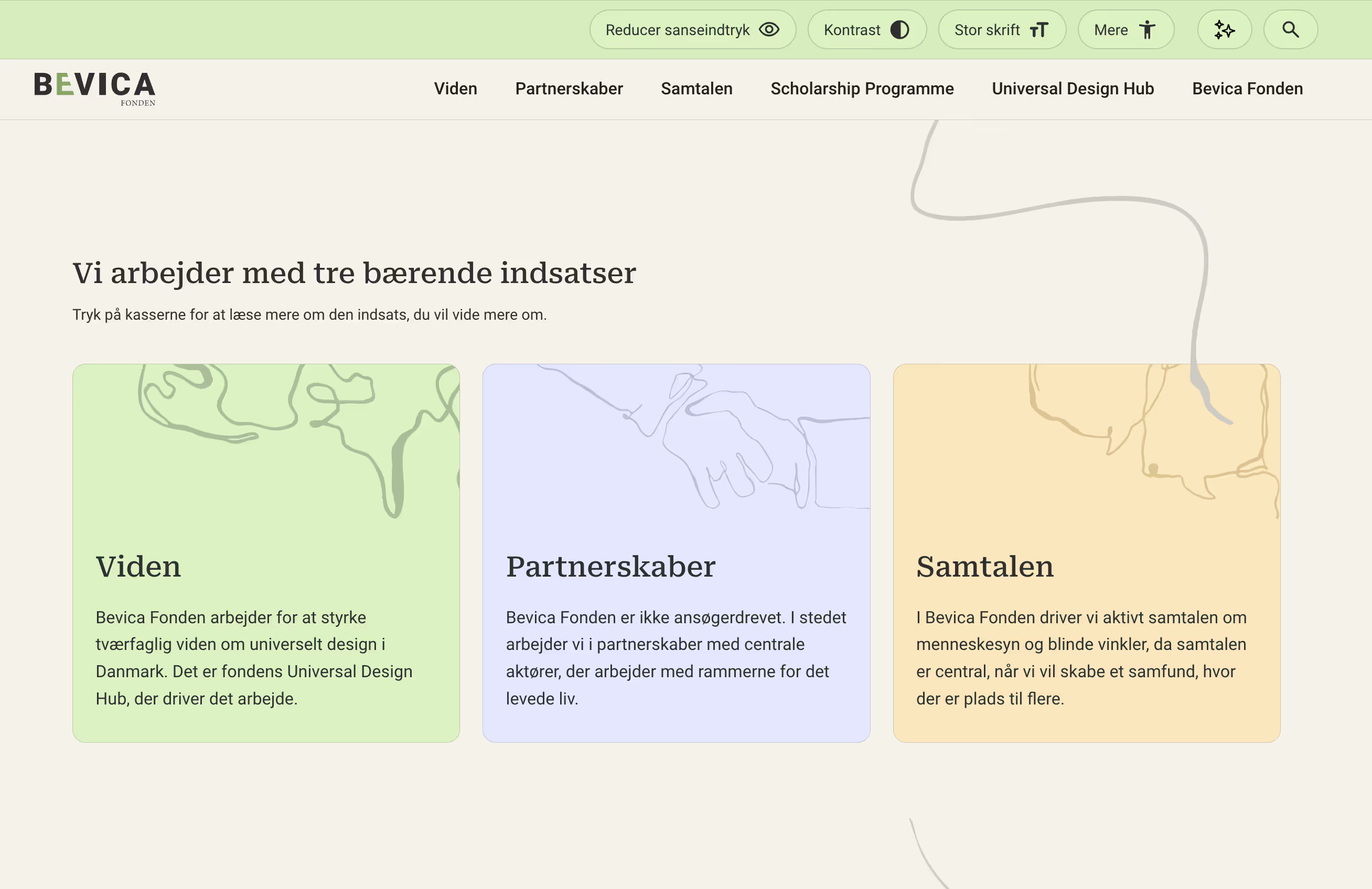
The new platform brings together Bevica’s entire digital universe in one portal where form and function work seamlessly to support the foundation’s mission. Users now experience a site that:
- Is structured around the three strategic pillars: Knowledge, Partnerships, and Dialogue
- Consolidates knowledge resources, topic packages, expert lists, and events into one flow
- Offers AI-powered search and navigation
- Gives users full control over their experience through accessibility features
- Presents Universal Design as both aesthetically engaging and functionally robust
Accessibility was a core priority — both technically and visually. The new platform is fully WCAG 2.2 AA-compliant and offers:
- Accessibility toolbar: Adjust contrast, resize text and reduce sensory impressions instantly
- Natural article read-aloud using modern text-to-speech technology
- Keyboard navigation and skip links for mouse-free browsing
- Optimized color contrast throughout the design
- Semantic HTML and ARIA roles for improved screen reader support

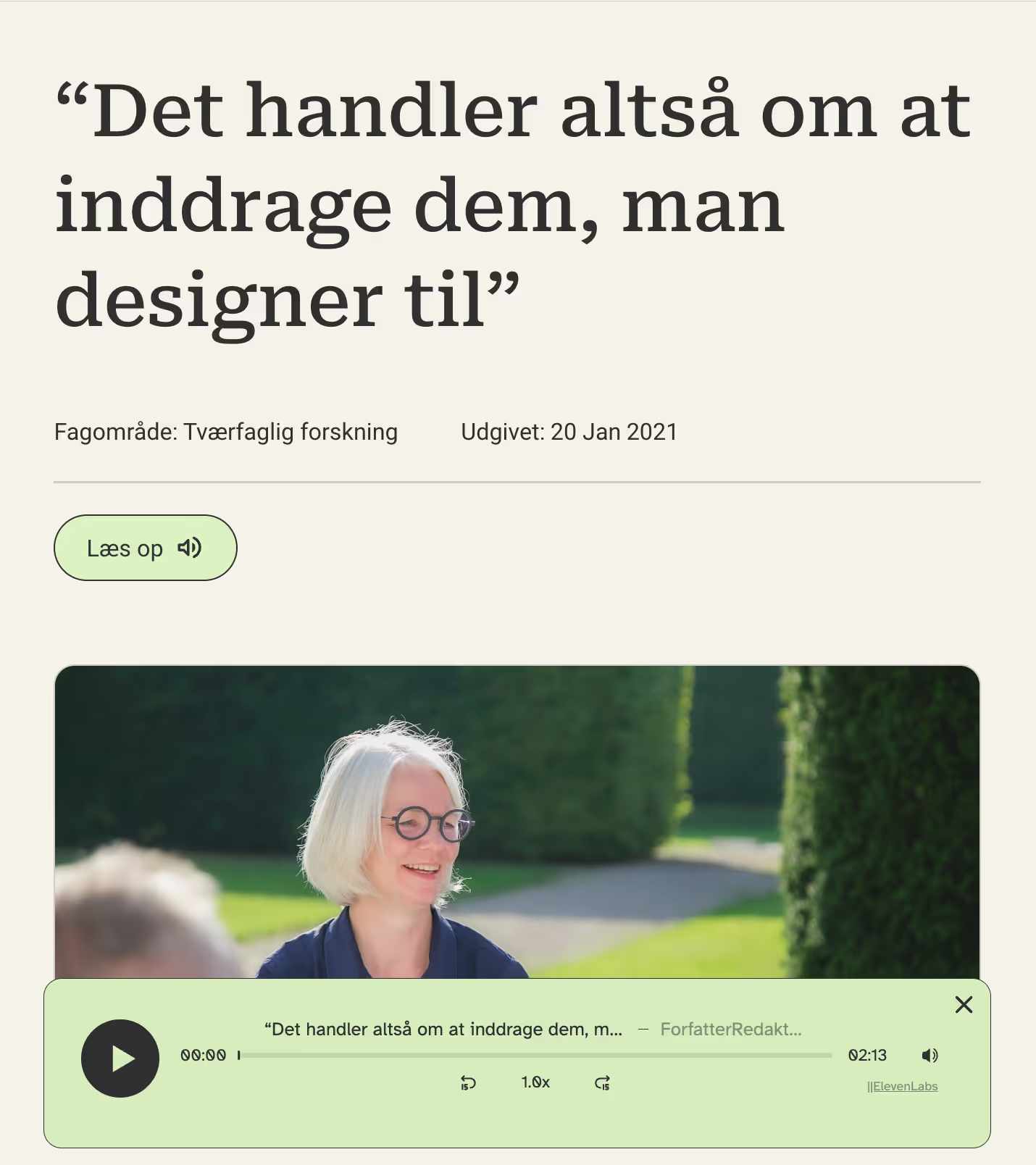
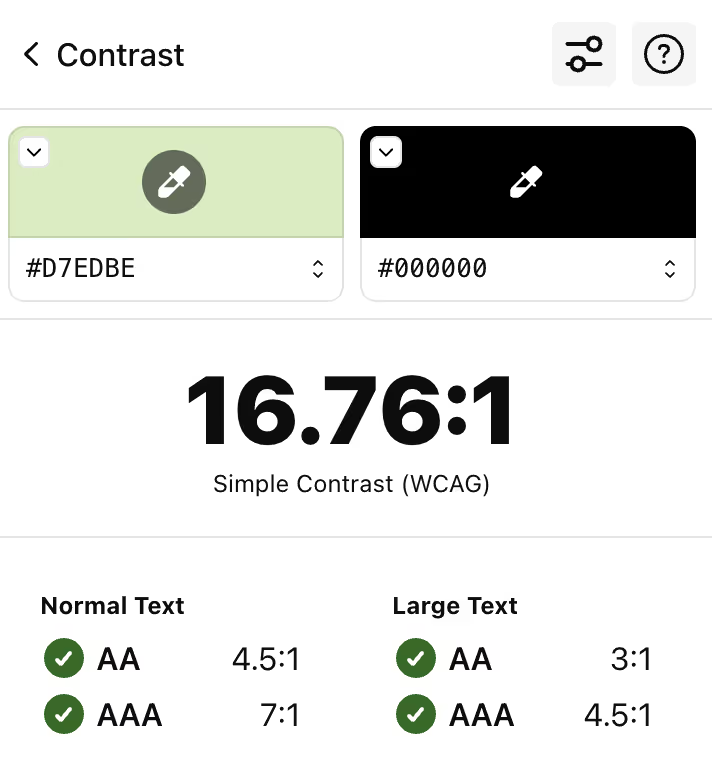

As part of the project, we built a custom RAG-based AI assistant trained on Bevica’s own resources on Universal Design. It can:
- Answer questions about Universal Design — both theoretical and practical
- Help users find relevant articles, reports, or experts
- Guide students and practitioners to relevant opportunities and resources
The AI assistant makes it fast and intuitive to navigate the foundation’s extensive knowledge base.
The project was kicked off with a series of workshops with the Bevica team to align on goals, audiences, and the three strategic pillars: Knowledge, Partnerships, and Dialogue. From there, we developed a new information architecture that could merge three legacy websites into a single, coherent platform.
In an iterative design process we evolved the Foundation's visual identity into a vibrant visual design with an imperfect human touch.
Midway through development, the idea arose to let users interact with Bevica’s knowledge base through AI. Together, we prototyped and built a custom RAG-based assistant connected directly to the CMS, designed to provide real-time, context-aware answers as content grows.
We migrated over 500 pages of content with proper redirects to preserve SEO and rebuilt everything in a flexible Webflow CMS, making the site easy to update and maintain
To ensure the platform worked for all audiences, we conducted user testing at the end of the process, validating navigation, accessibility, and content clarity with representatives from Bevica’s diverse target groups.
